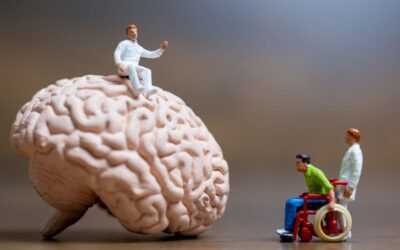Traumatic brain injury is sudden physical damage to the brain. The head forcefully hitting an object, a closed head injury, may cause the damage or by something passing through the skull and piercing the brain, like a gunshot wound, penetrating head injury. The major cause of traumatic brain injury is from motor vehicle accidents. Other causes include falls, sports injuries, violent crimes, and child abuse.
Physical, behavioral, or mental changes are dependent upon which areas of the brain are injured. Most often focal brain damage is done, which is damage confined to just a small area of the brain. This point is usually where the head has hit an object. Closed head injuries often times causes scattered brain injuries or damage to other areas of the brain.
Diffuse damage is the result of an impact causing the brain to move back and forth against the skull. Frontal and temporal lobes, responsible for speech and language, are often the most affected because they sit in the areas of the skull that allows more room for the brain to shift and sustain injury. Speech and language is therefore affected, as well as voice, swallowing, walking, balancing, and coordination difficulties and changes in the ability to smell and in memory and cognitive skills.
Check out the Common Symptoms of Traumatic Brain Injuries.
What Causes TBI Symptoms?
While neurological testing may not reveal physical evidence of the damage causing the symptoms, the trauma sustained does compromise the neuro-mechanisms of visual information processing.
The terms “whiplash” and “neck sprain” have been used to describe those injuries that result from auto accidents, where even if the head avoids striking something, the hyperextension and hyperflexion of the neck in response to impact forces, can cause damage. In the neck, muscles and ligaments undergo stretching and strain, or in more violent injuries, actual tearing.
TBI may also cause injury to the arteries, stretching of the nerves, and more rarely, injuries to the vertebral column itself.
These sheering or stretching forces generated as a result of trauma are responsible for the soft tissue damage that leads to the eye muscle coordination problems an symptoms that patients experience.



